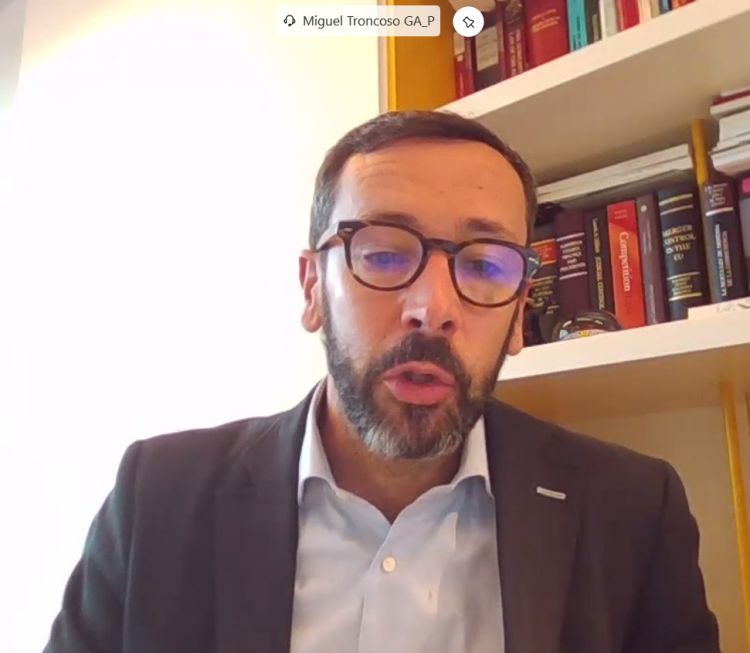Webinar: The Luxembourg Stock Exchange and the Luxembourg Green Exchange: market trends and regulatory developments
Last Monday 26th October, the Official Spanish Chamber of Commerce in Belgium and Luxembourg organized a webinar on ‘The Luxembourg Stock Exchange and the Luxembourg Green Exchange: market trends and regulatory developments’ in collaboration with Luxembourg Stock Exchange (LuxSE), and with the participation of its Head of Regulatory Affairs, Paula Redondo Pereira. The webinar was organised within the framework of the Spanish Financial Forum, a committee of the Chamber focused on the financial services industry.
Marta González Benguria, General Secretary of the Chamber, introduced the speaker and acted as a moderator of the event.
Then, Paula Redondo took the floor and thanked the Chamber for their invitation, as well as to all the attendees for their interest in the event. The speaker began by explaining the activity and functioning of the LuxSE, an institution with more than 90 years of history. Paula explained that the LuxSE is owned by market participants (banks, financial institutions, etc.) as well as by the government of the Grand Duchy of Luxembourg. The different activities developed within the LuxSE were presented, with special emphasis on listing, which is the main activity. The position of Spanish issuers, which currently stands at 43, was then outlined. This number is expected to grow in the near future due to the significant benefits of the LuxSE for issuers and investors.
The second part of the webinar focused on the Luxembourg Green Exchange (LGX), the first and so far only platform dedicated exclusively to sustainable financial instruments, created in 2016. The LGX is contributing to the regulation that is taking place in this field on the initiative of the European Commission, as it is part of the ‘EU Commission’s High Level Expert Group (HLEG) on sustainable finance’ and the ‘EU Commission’s Technical Expert Group (HLEG) on sustainable finance’. Currently, the possibility of creating standardized Green Bonds at the European level is being considered, an initiative in which LuxSE takes part.
Following the presentation, a question time was opened during which the attendees could ask all the doubts that arose during the event.
From the Official Chamber of Commerce of Spain in Belgium and Luxembourg we would like to thank Paula Redondo Pereira for accepting the invitation and all participants for their attendance.


